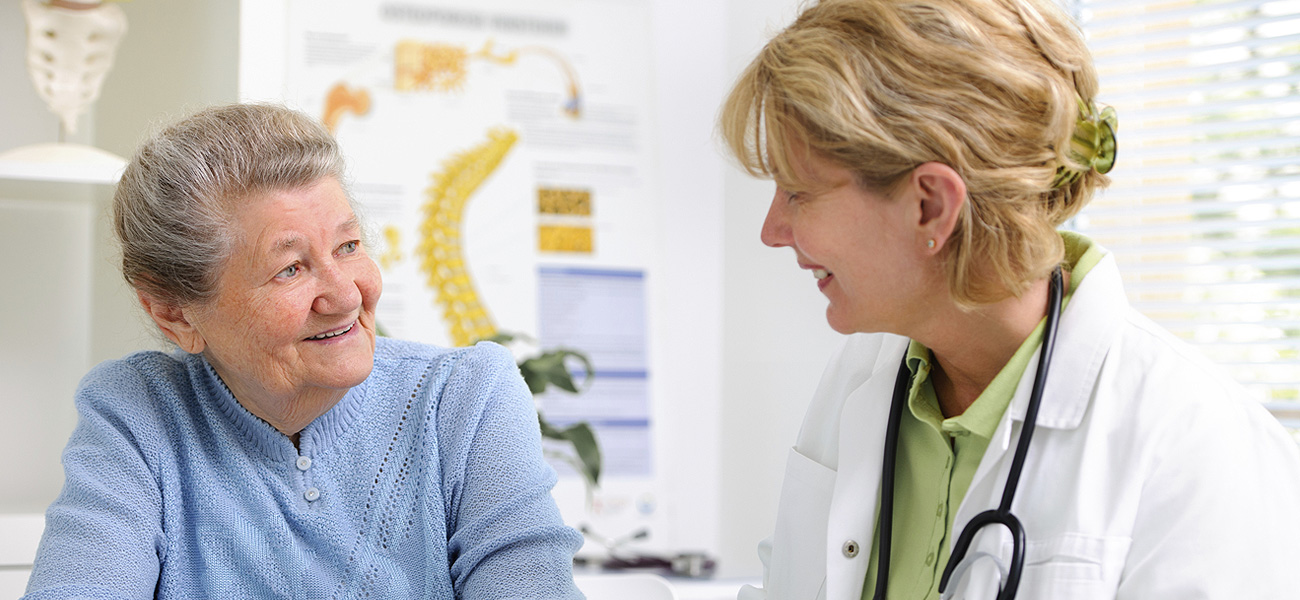The term “mental health” includes your emotional and psychological well-being. Your mental health guides how you handle stress, manage relationships and make decisions. Mental health, like physical health, is important to your overall well-being.
Emotions like sadness, anger or stress are normal and healthy responses to difficult life events, such as a cancer diagnosis. However, sometimes persistent feelings of sadness, stress or anxiety can be caused by a mental health disorder. Don't ignore any of these feelings. Talk to your healthcare team about how you are feeling.
When To Ask for Help for Mental Health Concerns
Although everyone can benefit from caring for their mental health, the following are signs that you may need to seek additional mental health support:
- Persistent feelings of sadness, hopelessness and anxiety
- Fatigue and lack of energy
- Feelings of worthlessness, guilt or helplessness
- Irritability
- Restlessness
- Sleep disturbances or excessive sleeping
- Overeating or a loss of appetite
- A loss of interest in hobbies or activities that you once enjoyed
- An inability to focus or concentrate, make decisions or remember details
- Headaches, stomachaches or digestive problems, cramps and other aches and pains that don't respond to treatment
- Thoughts of death or suicide
Seek medical advice if your symptoms or mood doesn't improve over time. If you're feeling anxious, sad or depressed during most of every day for two weeks, ask your doctor for help and guidance.
If you or a loved one is experiencing a mental health crisis, dial 988 to talk to a trained mental health professional. The 988 Suicide & Crisis Lifeline is free, confidential and always available. For the Crisis Text Line, text HOME to 741741.
Mental Health Disorders
Your best resource for a diagnosis is a trained mental health professional who will make an accurate diagnosis and create a treatment plan for you. Common mental health disorders of people diagnosed with cancer are:
- Depression
- Anxiety disorders, such as generalized anxiety disorder (GAD), obsessive compulsive disorder (OCD) and panic disorder
- Post-traumatic stress disorder (PTSD)
Physical Effects of Mental Health
Depression and anxiety might cause symptoms similar to the side effects of cancer and treatment: fatigue, nausea, decreased appetite, cognitive (thinking) changes and sleep problems. This makes it difficult to identify depression and anxiety disorders in people with cancer.
Unaddressed mental health issues may also make it challenging to follow your treatment plan or keep medical appointments.
Long-term, unmanaged stress can suppress the immune system, decreasing the body’s ability to fight infection, and increasing the risk for serious illness like heart disease and stroke.
Improving Mental Health
To improve you mental health, start by talking to your healthcare team. You may benefit from working with a mental health professional, such as a counselor or therapist, to learn to identify, understand and cope with emotions.
Medication can also hep with the symptoms of depression and anxiety. Many people take medication to improve these symptoms.
How to Find a Mental Health Provider
To find a mental health provider, you can:
- Ask your doctor or insurance provider for a referral.
- Visit Find a Social Worker for help in searching for local or online mental health professionals.
- Visit Association of Oncology Social Workers to find an oncology social worker (OSW) near you.
- Ask family or friends for a recommendation.
Connecting with Others
Isolation is common among cancer patients, and it is a risk factor for depression and anxiety disorders. Connecting with other people who have also experienced cancer can be very helpful. To connect with others, LLS offers:
- LLS Community, an online meeting place to talk to others and receive resources
- Weekly Online Chats, moderated by an oncology social worker
- Patti Robinson Kaufmann First Connection® program for peer-to-peer support
- Family Support Groups
You can also reach out to The Leukemia & Lymphoma Society's Information Specialists at (800) 955-4572 for more resources. And, ask your healthcare team about local support groups.
What You Can Do
While it's important that you discuss your depression and anxiety with your doctor and get professional help, there are also some things you can do to help yourself:
- Understand that your cancer doesn't define who you are. Be in touch and connect with people and activities that are separate from your cancer diagnosis. You are more than a cancer patient, and there are many more aspects to your life than cancer.
- Set small, manageable goals. For example, if you find it hard to get out of bed, set a goal of accomplishing just one thing a day: Make a phone call, cook dinner, take a walk — whatever works best for you.
- Don't isolate yourself. Try to have social interaction at least once a day with someone outside of the healthcare community.
- Strive for some light physical activity. It can be as simple as going outside to the mailbox each day. Gradually build up the amount of activity you can handle.
- Try to engage in activities beyond the cancer experience. Read a magazine article, listen to a book on tape, or watch a sitcom. Whether what you do is mundane or meaningful, the point is to get your mind off of how you feel.
- Journal. Writing down your feelings can help you work through and process your emotions. Order the free LLS Write It Out journal.
Related Links
- Download or order The Leukemia & Lymphoma Society's free booklets:
- Check out our HOW DO I? Video Series. In this series of short videos, cancer survivors and experts help guide you through issues that you may face after a cancer diagnosis.
